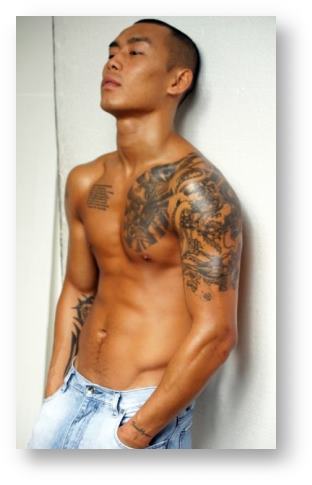This past weekend, I was invited to give a talk at Syracuse University as part of their celebration of Asian Pacific American Heritage Month (although APA Heritage Month is actually May, many colleges celebrate it in April because their finals and end of the semester is at the beginning of May). I had a great time there as I got a tour of their beautiful campus from my guide Jonathan, had lunch with many Asian American student leaders, and interacted with numerous staff and faculty.
I also had the opportunity to finally meet Jeff Yang, who was also invited to give a talk on the same day. Jeff was publisher of A. Magazine, one of the most popular and influential Asian American magazines during its run from 1989-2002. Since then, Jeff has published several books including co-editing Secret Identities: The Asian American Superhero Anthology and is widely recognized and respected as an expert on Asian and Asian American pop culture. I have admired Jeff’s work for a long time but only finally got the chance to meet him at Syracuse.

Jeff and I had a great chat over dinner and he mentioned to me that in one of his recent columns for the San Francisco Chronicle, he profiled Keni Styles, the only heterosexual male porn star of Asian descent. I understand and respect that many people have different (and strong) objections to pornography and I’m not here to defend or promote porn. Instead, I only to point out that many of Keni Styles’ observations on Asian Americans have a lot of sociological value (full transcript is here). Some examples from Jeff’s article:
“I get tons of e-mails from Asian guys who want to get into porn, and I always e-mail them back saying, ‘If you really did, you’d be doing it,’” he says. “Nothing is blocking anyone from getting into this business — Asian, white, or black.” It’s obviously not an industry for everyone — the physical challenges are demanding, the lifestyle can be grueling and, for those prone to the worst temptations, self-destructive. But Styles thinks that the real barrier Asian men face, in porn and in society, is in no small part self-created.
“I often interact a lot with Asian American guys in online forums, talking about the issues they face. And many of them really feel hard done by American culture — they feel unattractive, they feel defeated,” says Styles. “While I have a lot of empathy, there’s a sense in which this is self-inflicted. I didn’t grow up in the States; I don’t know first-hand what they’ve been through. But I can say, I didn’t have an easy street of it myself, and you know, I’ve overcome.” . . .
[F]or someone who works with it every day, Styles’s attitude toward his penis is remarkably blase. “The whole size issue is ridiculous,” he says. You don’t just [have sex] with your penis, you use your whole body, your attitude, your presence. The moment you say, ‘Oh, I’m X inches long,’ you’ve let society win the battle of thinking it matters. And it just doesn’t. I’m not the biggest there is, and I’m not the smallest, but I’ve never measured my penis against anything other than a girl’s vagina. If it fits and she’s happy, I’m happy.”
As I describe elsewhere on this site, Asian American men have been subjected to a lot of demeaning stereotypes by the mainstream media and on the group level, are frequently overlooked and marginalized when it comes to dating and marriage. Having said that, Styles make some very good points in terms of recognizing the barriers in front of you but then doing something about it, instead of just internalizing the stereotypes and the racism and living your life with an implicit or even explicit self-defeatist attitude.
With that in mind, I think that Asian Americans as a whole but particularly males can learn from this approach. However, I don’t recommend that we become porn stars, or embrace the whole “playa” womanizer persona, or that we need to act hyper-masculine and risk making fools out of ourselves. Nonetheless, there are many ways in which we can personify our sense of pride and confidence and break out of the “traditional” roles we’ve been limited to, or have limited ourselves to.
Yes, there are still plenty of institutional barriers out there for Asian Americans and other historically-marginalized groups to overcome. But we’ve encountered them before, we’ve mobilized our individual and collective resources to confront them, and we’ve lost some battles but have won many others. Through it all and within many walks of life and personal endeavors, and we’re still here and moving forward.
